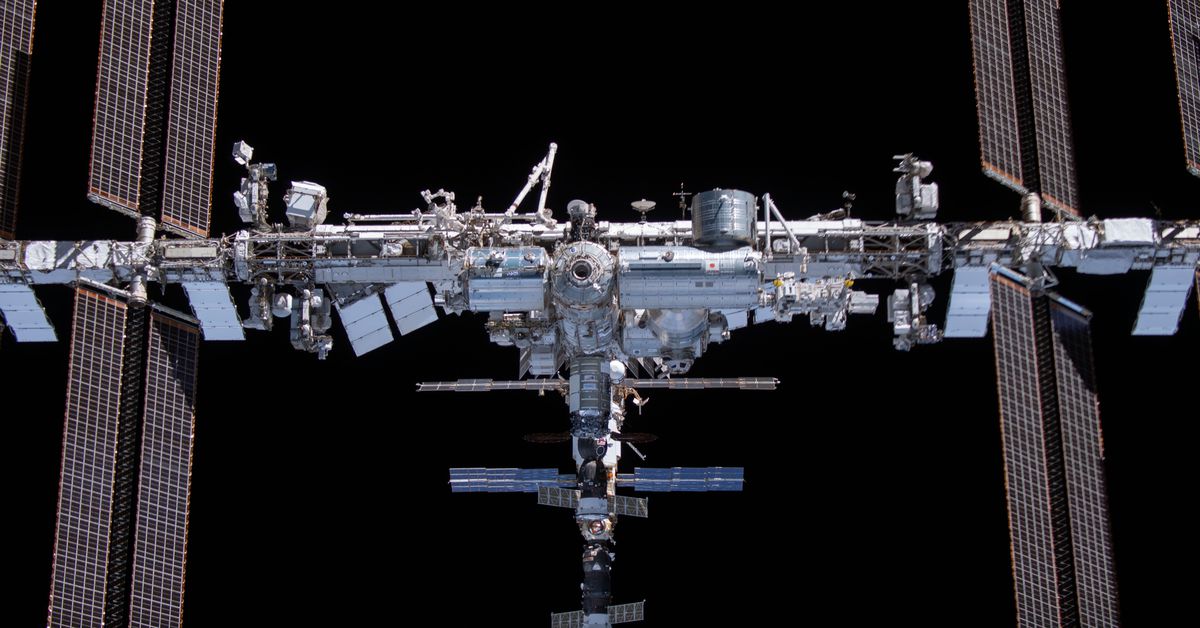Early this morning, NASA postponed a spacewalk scheduled to occur outside the International Space Station today, after getting word of a possible safety threat from some nearby space debris. It’s unclear where the debris is coming from, but the delay comes about two weeks after Russia blew up one of its own satellites in orbit, creating thousands of dangerous fragments that threatened the space station.
NASA astronauts Kayla Barron and Thomas Marshburn were all set to don spacesuits and leave the confines of the ISS this morning at around 7:10AM ET, in order to replace an antenna on the outside of the station. It would have been the fifth spacewalk for Marshburn and the first for Barron.
But before they could depart through the airlock, NASA personnel in mission control stopped the spacewalk. “It’s just real life, this is how things work out sometimes, and I’m really glad you fellows are looking out for our safety,” Mark Vande Hei, one of the astronauts on board the ISS, told flight controllers in mission control, according to CBS News.
In a short blog post, NASA says that it didn’t have enough time to “properly assess the risk” the debris posed to the astronauts, and so the agency opted to postpone the spacewalk until further notice.
:no_upscale()/cdn.vox-cdn.com/uploads/chorus_asset/file/23052321/marshburn_barron_promo2.jpeg)
It’s the second time in the last two weeks that space debris has upended plans on the International Space Station. On November 15th, the astronauts onboard the ISS were awakened extra early by mission controllers and told to shelter in place after Russia conducted an anti-satellite, or ASAT, test. Using some kind of kinetic missile, Russia blew up one of its own satellites, creating at least 1,700 pieces of trackable debris and thousands of smaller pieces that cannot be tracked. As the satellite was orbiting relatively close to the ISS, the debris cloud periodically passed near the ISS.
NASA did not say if the debris that postponed the spacewalk is from the same ASAT test, and the space agency did not immediately respond to a request for comment. However, NASA insinuated the delay will not have a big impact on the station. “The space station schedule and operations are able to easily accommodate the delay of the spacewalk,” NASA wrote in its blog post.





